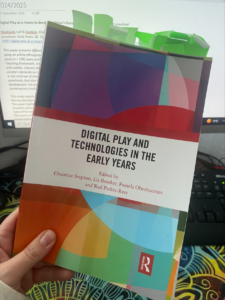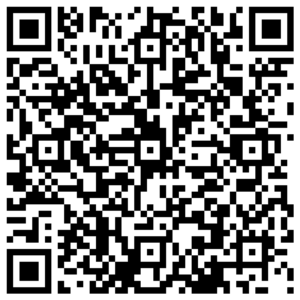
I am currently reading my way through Digital Play Technologies in The Early Years (Stephen, C., Brooker, L., Oberhuemer, P. and Parker-Rees, R. (2020) Digital Play and Technologies in the Early Years. Paperback. Published: 30 September 2020.) and have selected a chapter to share with you. Chapter 5: Digital Play as a means to develop children’s literacy and power in the Swedish preschool. Marklund, Leif & Dunkels, Elza. (2016). Digital play as a means to develop children’s literacy and power in the Swedish preschool. Early Years. 36. 10.1080/09575146.2016.1181608.
Abstract.
This paper presents different angles on the subject of digital play as a means to develop children’s literacy and power, using an online ethnographical study of Swedish preschool teachers’ discussions in informal online forums. Question posts (n = 239) were analysed using the Technological Pedagogical Knowledge framework and the Caring, Nurturing and Teaching framework, with the aim of understanding how teachers intended to support children’s literacy development with tablets. Literacy development can be understood as a social practice that needs to develop along with changes in society’s demands on citizens. The results presented indicate that school subject oriented skills are predominantly present in the mind-set of these preschool teachers. When digital play is increasingly used for pedagogical purposes in preschools, that also means that preschools have expanded their opportunities to work with children’s literacy development. For preschool teachers, it is important to discuss how literacy development can be supported in a contemporary media landscape.
This study examines Swedish preschool teachers online discussions about how they use digital play to support children’s literacy development.
The paper highlights that literacy is defined as a social practice that needs to develop alongside changes in society (societies demands on literacy), therefore children should have exposure to traditional print literacy and multimodal types of literacy via digital formats.
The report recognises some educators are not yet positioning themselves and their practice alongside the changes in society and explains that media panic may be the reason preventing involvement in digital play.
Another barrier educators may face is conflict between the balance of stepping back and stepping in to support children’s learning. Children are considered as competent, requiring little adult intervention, however when technology is present educators feel a need to supervise and support.
The paper suggests that perhaps what educators perceive as a decline in play due to changes in society and increased engagement with digital technologies is in fact
“a new way of playing, aligned with contemporary society but misaligned with our current conceptions on play and learning.” (Edwards 2014)
Like many other current studies on the digital play in early childhood, this report unpicks the consumer/creator discourse and the difference between open and closed apps and most importantly the role of the adult in supporting children’s literacy development;
“Thus, preschool teachers may help improve literacy development among children who engage in digital play, if they decide to engage in dialogues with these children, instead of treating games as the children’s own arena for actions.” (Gee 201; Lafton 2012).
- What are your thoughts? Do you agree literacy development can be understood as a social practice and needs to develop along with changes in society’s demands on citizens.
- What might the “media panic” be in regards to? Children’s wellbeing; screen time, lack of physical play, internet safety and cyber security?
- Do you know the difference between closed apps and open (ended) apps?
- How do you use digital play to support language development and what is your role, do you step in or step back?
Feel free to share your thoughts via this Microsoft Form



You must be logged in to post a comment.